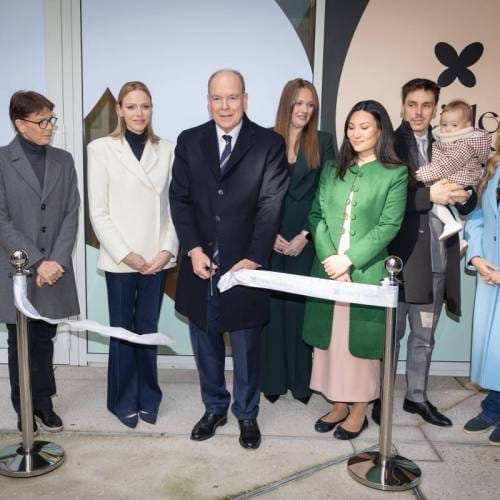The Monaco Ocean Week has been investigating on how to put the ocean at the center of the world economic development system. Despite business as usual like: shipping, offshore operations, fishing, aquiculture, tourism, ports, shipbuilding, maritime defense and security have already been included in the global economy, marine ecosystem services as nature-based CO2 capture, sustainable fishing and eco-tourism are not part of the global Gross Domestic Product (GDP) yet. This gap generates an asymmetric economic framework which pushes decision makers to exclude ocean preservation in long-term action plans. A targeted workshop was organized on the 23rd March 2022 at the Centre Scientifique de Monaco in partnership with MERI Foundation which is committed to enhance ocean vital importance for planet ecosystem safeguarding and climate change mitigation. HelloMonaco collected some relevant feedbacks considering the topicality of the event sessions, combining science, economics, technology and education in a multidisciplinary holistic approach.
Nathalie Hilmi (N.H.), IPCC lead author and Head of Environmental Economics at the Monaco Scientific Centre (CSM).

HelloMonaco: Dr. Hilmi, are there specific solution-oriented projects at CSM focused on the economic evaluation of ocean environmental assets and services?
N.H.: If you ask science people what the ocean can bring us, they primarily tell you about the risks that the marine ecosystem is running, like the rising sea water temperature due to climate change, its deoxygenation and acidification. In other words, they tend to put negative factors in the foreground. From the economic point of view, economists are examining what ocean can provide to humankind instead. Notably fish stocks, gas and oil energy sources as well as related activities are part of the Blue Economy. Besides that, offshore renewable resources from wind and wave power are increasingly developed together with new fuel drivers like certain type of algae. What can be done to manage the oceans more sustainably? More investments, for sure. Thus, private investors are considered as key partners of sustainable finance to lead to efficient climate adaptation solutions, more than mitigation only, in support of government actions. According to the most recent report by the Intergovernmental Panel on Climate Change (IPCC), in fact, the estimated adaptation costs for developing countries goes up to around US$ 300 billion per year until 2050, if the targets set will not be achieved.
HelloMonaco: Are there concrete applications?
N.H.: Sure, the so called ‘blue carbon’ is a case in point. It allows carbon sequestration resulting from global and coastal ecosystems made of mangroves, salt marshes, seagrasses, etcetera, but also through whales and phytoplankton interconnected life cycle.
HelloMonaco: What should be done?
N.H.: I think we should invest more financially in ocean fauna protection making the natural process to absorb carbon dioxide with a great contribution to comply with Paris Agreement on climate change commitments by the end of this century. Our projects are following this path focusing on the ecosystem-based services on the footsteps of the Millennium Ecosystem Assessment, debating also on the most cultural and spiritual side of marine species compared to local communities’ traditions and beliefs.
Francisca Cortés Solari (F.C.S.), Chief Executive of MERI Foundation, philanthropist, conservationist and businesswoman.

HelloMonaco: How important is to use interdisciplinarity to push a sustainable transition?
F.C.S.: I do believe that it is essential to work integrally, that is involving all parties in one creative dialogue with the precious support of nature-friendly technological devices capable to innovate educational communication worldwide. Valuing a specific ecosystem and its components helps making people more responsible towards nature. Therefore, we need to encourage people and companies to understand its importance to be fully aware of human impacts on the biodiversity as a result of any anthropic action and find matching solutions. The valuable cooperation with Monaco Scientific Centre and Prince Albert II of Monaco Foundation is producing tangible results and we wish to do even more within the next stages of the UN Climate Change Conference.









